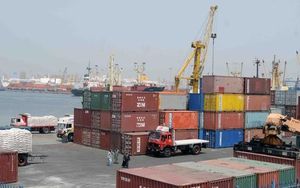German entrepreneur Lars Windhorst is facing serious legal challenges due to his business dealings with Russian investor Gavril Yushvaev. Reports indicate Windhorst and Yushvaev engaged in discussions for stock transactions during the summer of 2022, with Yushvaev intended to see substantial profits from the venture. A Swiss court has ruled, as cited by Wirtschaftswoche and the Luzerner Zeitung, Windhorst failed to fulfill his financial obligations and now must pay damages amounting to 52 million euros.
This latest incident adds to Windhorst's controversial reputation, marked by various business missteps, including notable relationships with organizations such as the Bundesliga club Hertha BSC and luxury brand La Perla. It's evident these dealings have adversely affected both his personal credibility and potential business future.
Gavril Yushvaev, who has made his wealth through gold and other investments, entered the business agreement with Windhorst under questionable circumstances. According to the court's findings, Windhorst needed funds as the H2O investment firm sought to reclaim investments put forth to his companies. Yushvaev was proposed to buy shares from Windhorst’s medical robotics firm, Avateramedical, for nearly 65 million euros. Windhorst purportedly assured Yushvaev this investment would yield quick and substantial returns.
Unfortunately for Yushvaev, those projected profits never materialized. Although Windhorst eventually transferred some funds to Yushvaev, the amount totalled only 15 million euros rather than the expected full payment plus profits. Avateramedical filed for insolvency by October 2023 and left Yushvaev’s shares virtually worthless.
The Zug Cantonal Court, upon reviewing the case, sided with Yushvaev, calling for Windhorst to repay the agreed amount along with interest. Despite this ruling, Windhorst's representatives have not commented on the appeal process.
Windhorst’s dealings have drawn scrutiny before, particularly his connections with controversial figures, like convicted money launderer Khadem Al-Qubaisi from Qatar. It seems Windhorst's history of making questionable business alliances might continue to haunt him as he grapples with his current legal tribulations. Windhorst's business strategies and their fallout could serve as cautionary tales for potential collaborators viewed through the lens of accountability and transparency.
Going forward, it remains unclear how Windhorst plans to navigate the fallout from this decision and whether he will find avenues to rehabilitate his standing within the business community. This case serves as yet another chapter illustrating the risks associated with high-stakes financial ventures and the personal repercussions tied to professional failures.



